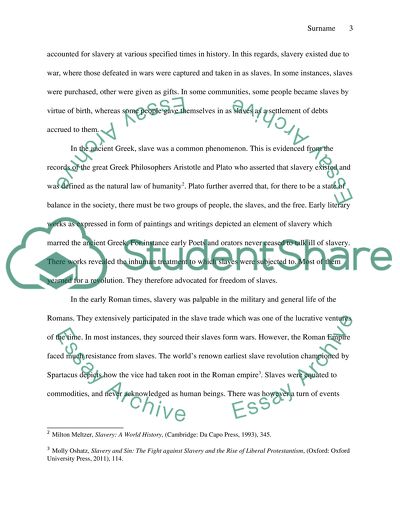Cite this document
(“Slavery and Religion Essay Example | Topics and Well Written Essays - 2500 words”, n.d.)
Retrieved from https://studentshare.org/history/1396098-slavery-and-religion
Retrieved from https://studentshare.org/history/1396098-slavery-and-religion
(Slavery and Religion Essay Example | Topics and Well Written Essays - 2500 Words)
https://studentshare.org/history/1396098-slavery-and-religion.
https://studentshare.org/history/1396098-slavery-and-religion.
“Slavery and Religion Essay Example | Topics and Well Written Essays - 2500 Words”, n.d. https://studentshare.org/history/1396098-slavery-and-religion.


